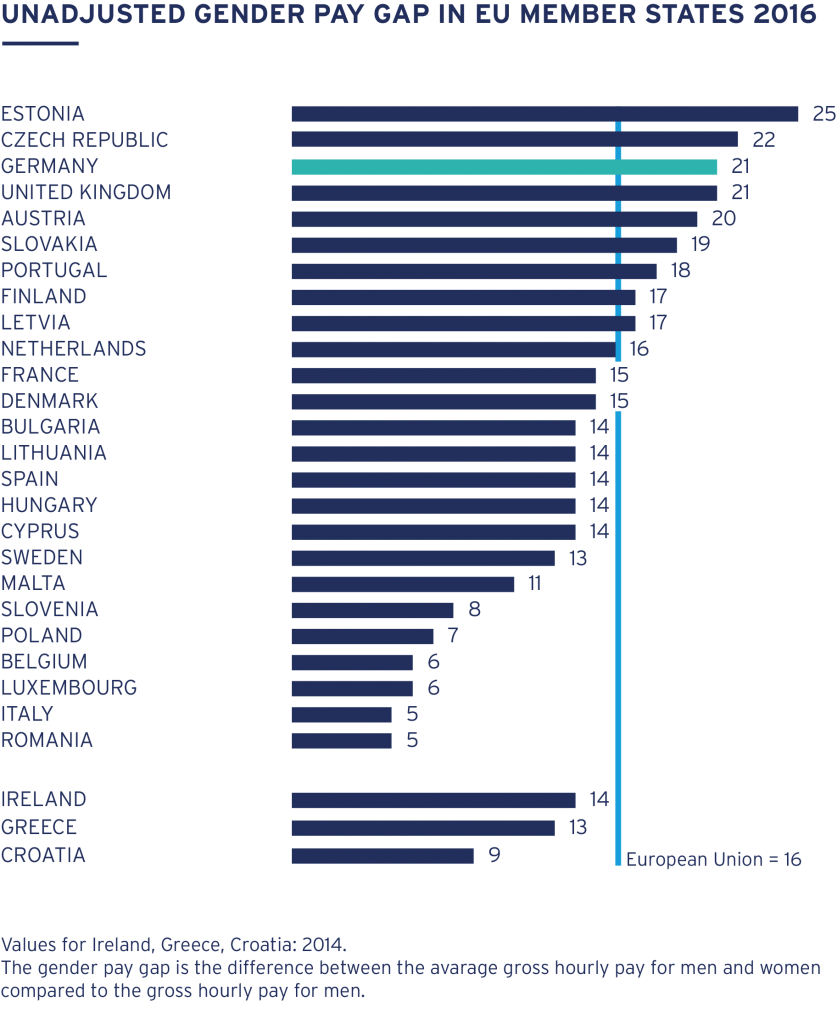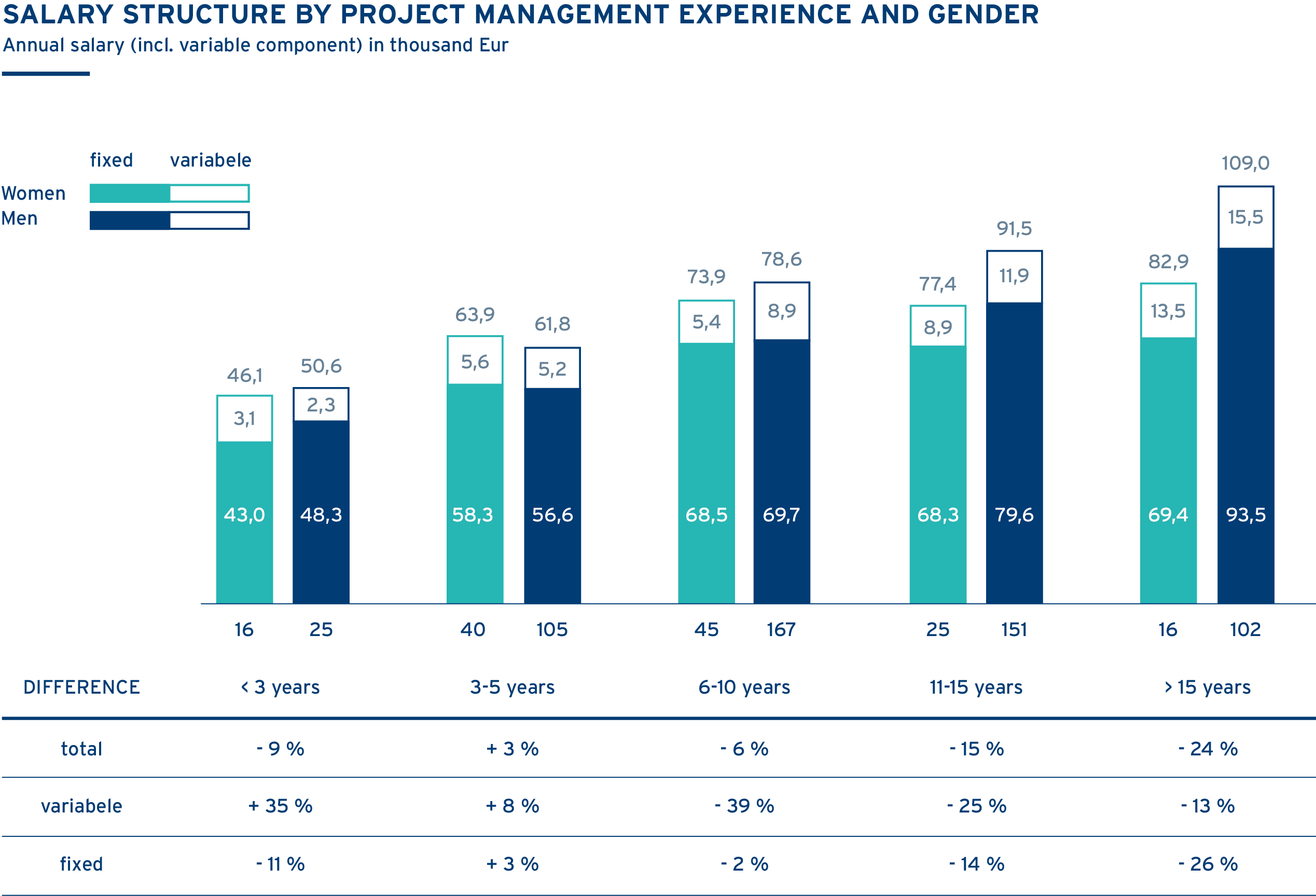„If you want something said, ask a man; if you want something done, ask a woman.“ (Margaret Thatcher)
100 years of women’s right to vote in Germany – the perfect moment to analyse gender equality in project management. In this blog post we show the historical development and current findings on the job situation of women in Consultancies.
Equality as Historical Change
Exactly 100 years ago, on 12 November 1918, the day after the signing of the armistice and thus at the end of the First World War, the Council of People’s Representatives paved the way for women in Germany to be eligible to vote with their appeal “To the German People”. The right to vote for women, introduced after decades of hard fighting by women’s rights campaigners was more even: this moment can be seen as the foundation for the move towards legal equality between men and women.
A lot has happened since then: just half a century ago, women were considered as keepers of the family, loving housewife and mother who until 1977 had to ask her husband for permission if she wanted to take up employment. And even working women were then and sometimes still are today associated with certain gender-typical areas of work: teacher, nurse, sales assistant were for a long time considered typically female occupations. But what has really happened since the introduction of women’s right to vote? How equal are women in private life and at work? And what is the situation with regard to equality of men and women in the consulting industry?
According to a poll published in the 10 October 2018 edition of “Der Spiegel”, 58% of respondents say that equality has largely been achieved for women in Germany. It appears that generally, the course has been set for equal opportunities: Half of university graduates are female – and the trend is rising. Women are more self-determined in their family planning and more of them are in employment. According to the Federal Office for Statistics, Germany has a comparatively high proportion of working women, compared with the rest of Europe.
And yet, there are still massive differences when comparing the sexes, especially in the area of the working environment: Women earn significantly less on average for the same work than their male colleagues and are also significantly less represented in management positions. It is interesting to compare the gender pay gap at European level (see figure below). Here, Germany ranks third highest within Europe for the unadjusted gender pay gap.

Own diagram, based on information by Federal Statistical Office, 2018
Gender Pay Gap in Management Consultancies
But what does the gender pay gap look like in the consulting industry? Are there still significant pay gaps between the sexes? According to a study by the German Society for Project Management (GPM) from 2014, the pay gap for GPM members averaged 16%, with pay differences particularly pronounced in the highest echelons. A follow-up study by GPM three years later indicates at least a small positive trend: women earned on average 14.1% less than men that year.

Own diagram, based on information by GPM, 2014
It is particularly striking in this context that the difference in salaries between sexes in the project management industry is not initially that big. Only after 11 years of experience is there a noticeably large difference in income. As the figure below shows, male colleagues with more than 15 years of professional experience earn approximately 24% more (GPM, 2014, p. 30). It appears therefore that pay gaps between men and women rise in line with professional experience and hierarchy level.
Women in Project Management
But how can it be possible that women in the consulting industry are still not paid equally? In an interview, Dr Andrea Hauk, Global Project Manager at Roche, explains that women in project management “depending on the project team, initially feel that they are fighting an uphill struggle in order to achieve a “status” that allows them to be on a par when communicating with the (male) project team members. However, current developments indicate that project management is becoming more and more female: The percentage of female PM master graduates is rapidly growing, as is the percentage of female applicants. In an interview in 2016, Dorothee Feldmüller, member of the management team “PM Women Experts” of GPM explains: “When we set up the special interest group ‘PM Women Experts’ within the GPM German Society for Project Management in 2007, 13 percent of members were female. Until today, this percentage has increased to 19 percent.”
In Dr Andrea Hauk’s view, this means a significant improvement in gender equality in the PM industry: “While a woman pioneer fights an uphill struggle, she automatically paves the way for other women on the project team, who are then much more likely to be respected and perceived as equal and “speaking the same language”. This trend not only has an impact on improved equality. Companies are also demonstrably more successful where women work on projects. “Either women took on the case after our departure or the project was dead,” explained Elias Bierdel in a video for the PM Days 2018.
One thing is abundantly clear: Women represent an absolute added value in project management, especially in management positions! However, women still face challenges when pursuing a career at management level. In many companies, reconciling work and family life is not a matter of course and women often face prejudice at work.
Dr Andrea Hauk considers a rethink indispensable: “Flexibility (time and location) is the magic word here, I think. Once we manage to achieve a flexible corporate culture, not only on paper but in the minds of bosses and colleagues, I am sure many women and men will manage to reconcile family and work in future.” In the end, it is the responsibility of companies themselves to encourage and demand a rethink among employees.
For us at Tiba, gender is not an indicator of the quality of performance. Equality between men and women thus already has high priority in our corporate culture. We therefore use this opportunity to let our female staff have their say about their experience in their professional lives. These interviews on gender equality and women in project management as well as personal views of the interview partners on the GPM studies can be read in detail in our next issue of the Tiba Magazine in December 2018. Another focal point in the interviews will be the educational gap between sexes. According to the GPM study from 2014, women in project management hold higher levels of educational qualifications and also invest more time into their training.
The Tiba Business School wants to promote this training commitment by female staff all round and therefore offers a wide choice of training courses on project management. Please visit our stall at the free-of-charge women&work exhibition in Frankfurt on 4 May 2019 if you would like to find out more about the range of professional training of Tiba Business School. At the exhibition which will be held under the 2019 motto “Humanism 4.0.”, the Tiba Business School would like to provide an insight into tomorrow’s training trends.
Women Power Today and Tomorrow
How can all these findings be summarised in conclusion?
„The thing women have yet to learn is nobody gives you power. You just take it.“ (Roseanne Barr, US-Schauspielerin)
Exactly one hundred years ago it was virtually unfeasible for women to be considered as equal. For women to hold high levels of functions now, to run companies independently and to decide for themselves how they would like to live their lives was hard to imagine at that time. And yet much has changed since then – because women have stood up for their rights. That is why women today must continue to insist on equality, to eliminate once and for all of the last remaining instances of inequality.
Author: Marina Mergen, Tiba Managementberatung GmbH

